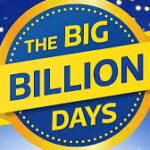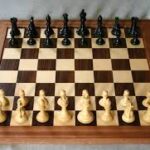Importance of Books
Books have long been the cornerstone of human knowledge, creativity, and culture, playing a pivotal role in the development of societies and individuals alike. From ancient scrolls and manuscripts to modern e-books, books have evolved in form, but their essence remains unchanged: they are vessels of ideas, stories, and information that transcend time and space.
One of the most significant aspects of books is their ability to preserve knowledge. Historical texts, scientific treatises, philosophical works, and literary masterpieces provide insights into the thoughts and achievements of past civilizations, offering invaluable lessons and perspectives. This preservation of knowledge ensures that each generation can build upon the discoveries and reflections of its predecessors, fostering a continuous advancement of human understanding. Furthermore, books serve as a reliable and enduring source of information, immune to the fleeting nature of digital data, thus safeguarding the intellectual heritage of humanity.
In addition to their educational value, books are powerful tools for personal growth and self-discovery. Reading stimulates the mind, enhances vocabulary, and improves cognitive skills such as critical thinking, comprehension, and empathy. Through engaging with diverse narratives and viewpoints, readers develop a broader understanding of the world and a deeper appreciation for different cultures and experiences. Books also provide solace and inspiration, offering comfort in times of distress and motivation to pursue dreams and overcome challenges. The act of reading can be a meditative and transformative experience, allowing individuals to escape the confines of their immediate reality and explore new realms of imagination and possibility.
Moreover, books are integral to the cultivation of creativity and the arts. They inspire writers, poets, artists, and thinkers to explore new ideas, experiment with different styles, and push the boundaries of their craft. Literary genres such as fiction, poetry, drama, and non-fiction provide a rich tapestry of expression, each offering unique ways to convey human experiences and emotions. The interplay between text and imagination not only fuels artistic endeavors but also enriches the cultural fabric of society, contributing to a vibrant and dynamic intellectual landscape.
Books also play a crucial role in promoting literacy and education. They are fundamental tools in teaching reading and writing skills, fostering a love for learning from an early age. Access to books can bridge educational gaps, providing opportunities for underprivileged communities to acquire knowledge and improve their socio-economic conditions. Libraries, both physical and digital, serve as accessible repositories of books, democratizing access to information and fostering a culture of lifelong learning.
In conclusion, books are more than mere objects; they are gateways to knowledge, creativity, and personal growth. Their impact on society is profound and multifaceted, shaping the way we think, feel, and interact with the world. As we continue to navigate the complexities of the modern era, the timeless value of books remains as relevant as ever, underscoring their indispensable role in the enrichment of human life and culture.
4o



































































https://www.houzz.in/pro/godrej-woodscapesunits/godrej-woodscapes
https://www.owler.com/company/godrejwoodscape
https://scrapbox.io/gwoodscapesunits/Modern_Apartments_in_Bangalore
https://www.catchafire.org/profiles/2887619/
https://godrejwoodscapes2.website3.me/
https://bio.fm/praintreeparkunit
https://www.fitday.com/fitness/forums/members/gwoodscapes.html
https://clearvoice.com/cv/GodrejWoodscapes
https://www.pozible.com/profile/godrej-woodscapes-2
https://www.renderosity.com/users/id:1517782
https://py.checkio.org/class/demo-class-praintreepark/
https://paiza.io/projects/e/xfEgN4DHRotXCtp1hE4i4Q
https://www.nextbizthing.com/real-estate/prestige-raintree-park
https://forums.dayz.com/profile/283857-prestige-raintree-park-units/
http://www.ccwin.cn/space-uid-12003904.html
https://www.lovelybooks.de/mitglied/Prestige_Somerville/
https://nextion.tech/forums/users/praintreepark/
https://code.getnoc.com/praintreepark
https://www.plimbi.com/author/184109/praintreepark
https://forum.prusa3d.com/forum/profile/prestige-somerville/
https://www.ancient-origins.net/users/psomervilleunit
https://musescore.com/user/84252100
https://www.minecraftforum.net/members/psomerville
https://www.vidio.com/@prestige.some/about
https://campsite.bio/psomerville
http://snstheme.com/forums/users/psomerville/
https://community.hodinkee.com/members/psomerville